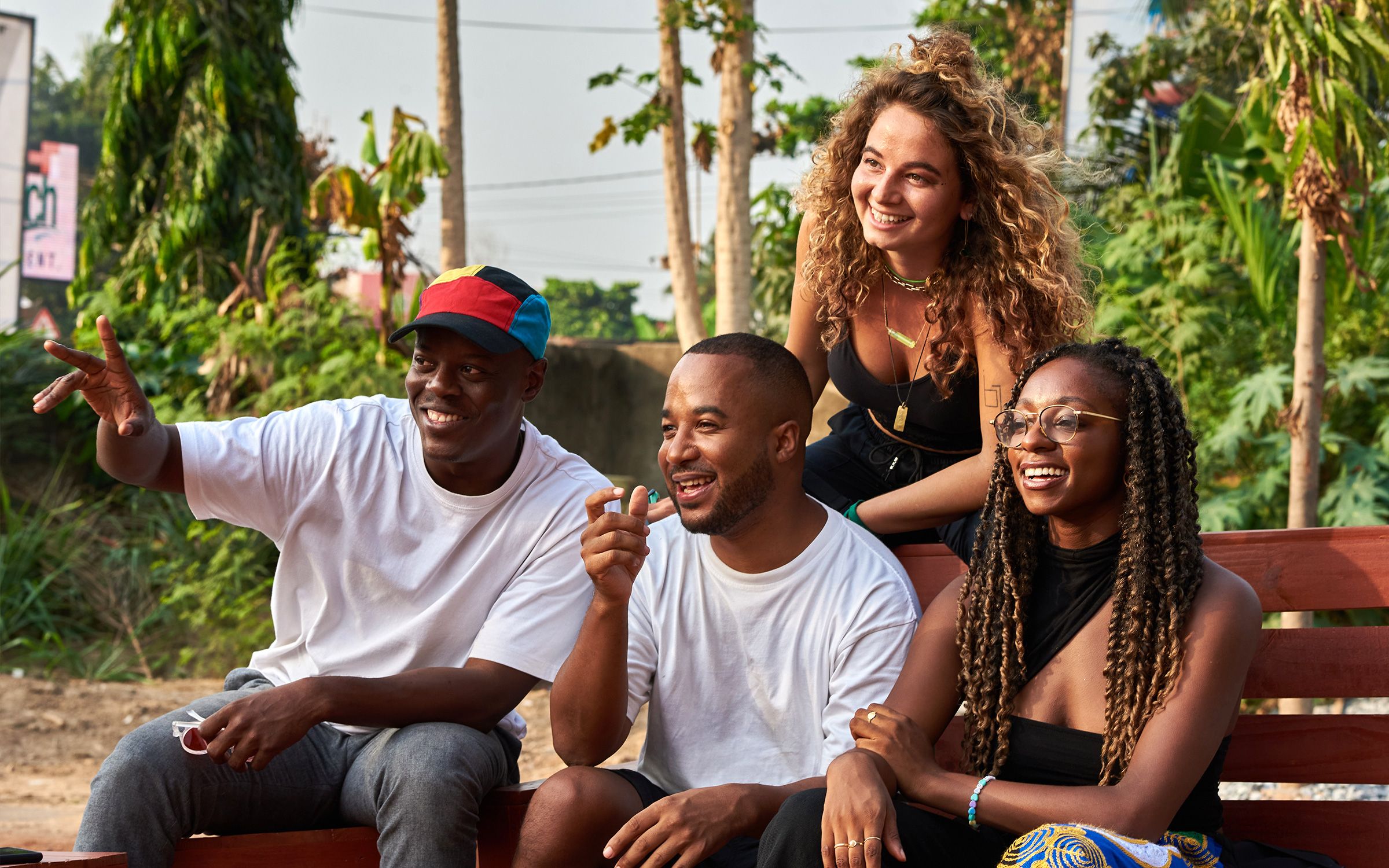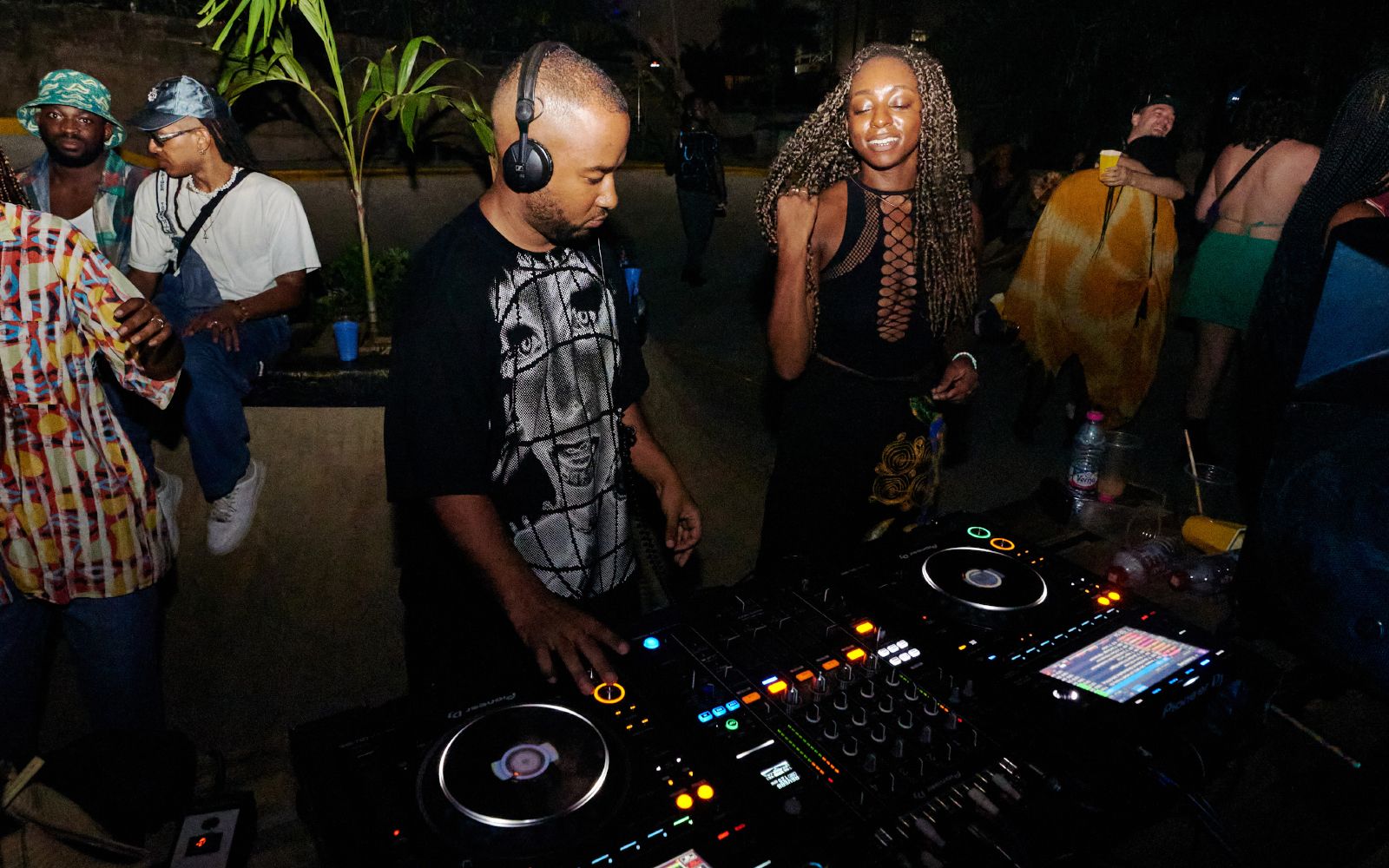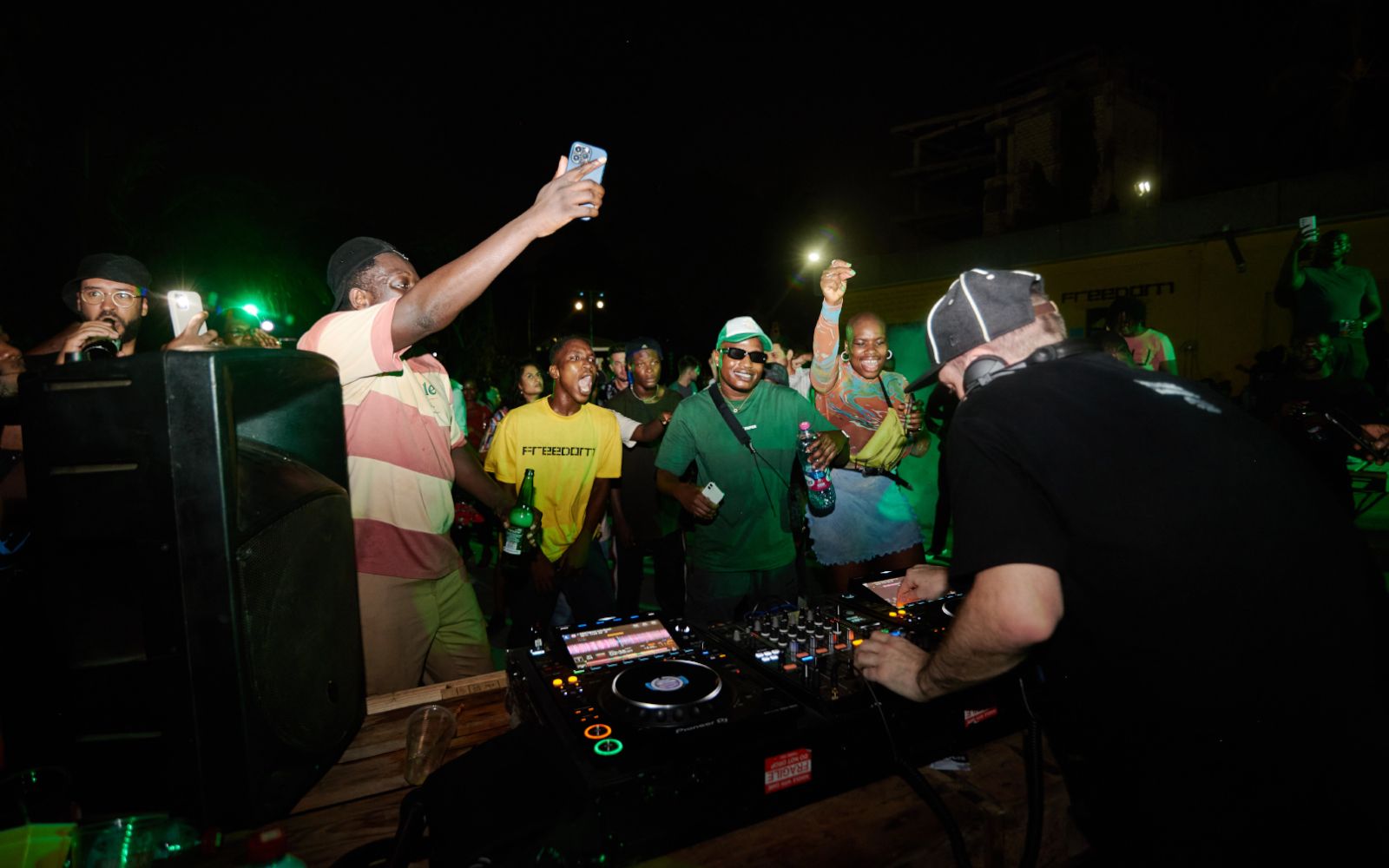03 Feb 2022
ACCRA
NEWS
Thu 03 February 2022 @ 13H
Oroko Radio Featured In Resident Advisor
We're very pleased with this feature in RA, and not only because it allowed us to shed light on Oroko and its goals and visions. You can now also add Ghana and its venues and events to the RA website, and that's what it's all about; visibility.
By Resident Advisor (Sarah Osei)
This article was published on 02/02/2022 on the RA website, and written by Sarah Osei. Pictures are by Araba Ankuma.
The streaming platform, which launched last week, is bringing together African diasporic voices from around the globe.
There's always a radio blasting from someplace or another in Accra—whether it's hectic football commentary punctuating the thick heat, or a popular song blasting out a car window soundtracking the traffic. But between the politics it espouses and the music and ads its producers play, local radio is loudly mainstream and corporate. For the city's creative youth, total freedom of expression has to be found elsewhere. Enter Oroko Radio, the community-led station giving a voice to Accra's counterculture. "When I moved back to Ghana, coming here seeing all these dope creatives, all these crazy musicians, there's so much talent here," Oroko Radio co-founder Nico Adomako tells me. The platform just announced its first roster, which boasts resident DJs and recording artists from across Africa, the diaspora and, chiefly, the Ghanaian music scene. "There's not really access or a platform to share their music with creators around the world or somewhere else in Africa, or even to share their own experiences and tell their own stories on their terms. We looked at the current landscape they're working in and [asked], 'Does it have to be like this?'" While Ghana's artistic profile is on the rise, that's not to say emerging talent has it easy. The Ghanaian capital's creative scene is steadily growing, drawing artists, musicians, DJs and party-goers from all over the continent and the world, but public funding, infrastructure and platforms for the arts are scarce; creatives are largely left to their own devices. "The reason the industry isn't even popping yet is because people aren't getting the financial backing they need and deserve. People are not getting support, they struggle to put out work," says Maxwell Adjavon, a music editor and founder of Ghanaian media company iMullar. "And as a creative, that makes or breaks you entirely." Another local tastemaker, Rvdical the Kid, who's produced for the likes of rising West African superstars Amaarae and Tems, expresses a similar exasperation with Ghana's creative scene. "Even if you look at the nightlife, which is so hyped about, it doesn't feel like there's an actual club culture. It's just different bars and different people doing their things separately. And I wouldn't say there's an actual conversation or sense of community between all these people."

Rvdical the Kid, Nico Adomako, Naëmi Ada and Kikelomo
The brainchild of founders music producer Truseye, director Naëmi Ada, and DJs Kikelomo and Nico Adomako, the newly-formed Oroko Radio hopes to radically overhaul this collective frustration into a fruitful creative outlet. "We were all moving in between Ghana and Europe. It just made sense to connect while we're all out here," Adomako says. "And then earlier this year, in March, we linked and just shared some ideas and were all like, 'Yeah radio station.' [...] Infrastructure-wise, we thought it would be super important to start in Ghana because you see a lot of stuff already happening musically, but not focused on community enough. That's what West Africa needs." The platform offers a welcome antidote to the corporate agenda of mainstream radio by putting the focus on music as a culture, operating simultaneously as a community hub and an outlet championing the voices of African and African diasporic voices that value freedom, creativity and far-reaching music. The station launched a series of pop-ups, DJ workshops and panel discussions in December 2021, and invited the community to pitch shows they'd like to program or host. With two broadcasts per week, Oroko is focused on sharing their platform with artists and creatives shaping the culture locally and in African communities living abroad. Oroko's name refers to a non-verbal, pre-colonial dialogue used between African people. "We were shooting messages into the group chat, trying to come up with a name for this project, and then we came across Àrokò," explains Kike. "Before European interference, [Àrokò] was this form of communication that took place between communities in West Africa." Originating from modern-day Nigeria's Yoruba tribe, Àrokò utilized objects sent via a messenger, which were then used to communicate "anything from business deals to weddings and funerals to declarations of war and breaking up with people." While Àrokò spread across the region, it was notably observed during the slave trade, particularly in Florida, where enslaved people used it to secretly coordinate slave rebellions. "We just really loved the pre-colonial European context of the word: this interconnectedness between Africa and the diaspora, and the whole power of communication, which is what our station also represents," Kike continues.


Steady Signal Party Radio was instrumental in starting Kike's career and connecting her to the wider underground dance music community while she was living in Europe. "Knowing the role it plays in bringing people together was pretty much the inspiration for starting this project," she says. Adomako and Kike are longtime friends—both transplants from Berlin—who found themselves in Accra this year. Adomako, who's of Ghanaian heritage, wanted to settle down in his fatherland, while Nigerian-British Kike found that the city was the "perfect place to be" as a woman and a creative. The duo initially organized a party series in Accra earlier this year, Steady Signal, that provided a platform for their friends and untapped regional talent that was struggling to be heard. They wanted to replicate the underground spaces within which they circulated in Europe, like Adomako's Einhundert DJ collective or Kike's stints as a host of Boiler Room and Cashmere Radio, as well as the countless DJ streams, community events and club nights they both participated in. For two self-described "radio kids," opening a station felt like the natural and most effective way to replicate this anything-goes environment in Ghana. "All my inspiration comes from radio. That really set me on this path as a kid," says Adomako. Kike agrees: "Radio has always been my passion. It's the reason why I am where I am today. I wouldn't be a DJ without radio. I wouldn't have the community that I have in Berlin without radio. Being a Londoner, born and raised, there's a really big culture around it, specifically pirate radio stations and also if you look across institutions like the BBC. And it's not only the content, but the community spaces that they also provide." Channelling the DIY energy of London's pirate radio culture and the total musical freedom of Berlin's techno scene, Adomako and Kike hope to revolutionize online radio locally and Africa's creative community by extension. In my conversations with people in Ghana about Oroko, the question that always comes up is whether European transplants are the right people to carry this vision. "Recreating this kind of DJ culture you find abroad, there's a risk of just feeding to that very definite crowd of people who understand that world, but then reaching the Ghanaian masses is another story," admits Rvdical. "Yeah, people can get tacky about skin color or where you were raised," Maxwell continues. "[But] if we have a focus group or a platform that is providing that service or providing that space for creatives in general, I think it's a very good thing and we need to support it, regardless of who created it. As far as it's catering to the people that it's supposed to cater to. We need someone to break down that door." While African creatives have historically been exploited or tokenized, Oroko Radio provides a foil to mainstream (and non-African) outlets by letting their community in Accra participate in and control their own narrative. Until now, African community radio has been focused entirely on the socioeconomic aspects of development. Oroko is rooted in the power of culture. Kike speaks of internet broadcasters like NTS Radio and Foundation FM as inspirations for how they want to operate and "create impact by really bringing people together ... around this exploration of culture on a sonic level, in all its facets." Oroko might be based out of Accra, but it has its sights set on the continent at large. "Obviously the next goal is a permanent studio space here," says Adomako of Oroko's temporary remote setup. "But it would be amazing if we'd be able to set up these pop-ups and events in, I don't know, South Africa, East Africa, and have these ongoing conversations through music and art across numerous African countries and connect everything on this online platform." Their growing roster of residents already includes rapper and activist Wanlov, DJ and producer TMSKD and indie collective SuperJazzClub in Ghana, as well as Los Angeles-based DJ Blaq Pages, Nigerian Afro-folk artist Tommy WÁ and Jamaican Female dancehall collective Constant Bubble. In the process of allowing a community to nurture itself and build content to be shared outside of mainstream channels, Oroko Radio hopes to redress the imbalance within Ghana's creative scene. "Ghanaians have a difficult time embracing something that is outside their notion of popular music," Rvdical the Kid says, referring to the hegemony of Afrobeats, amapiano and hip-hop. "Like, guys, look, there's so much more music out there that we can enjoy. We can't keep limiting ourselves to this one thing. And once we nurture our DJ culture and really appreciate what the DJ does, maybe we can get out of this funk [...] In that sense Nico and Kike are the right ones for the job." Oroko Radio is off to a promising start.
Find the article at https://ra.co/features/3957